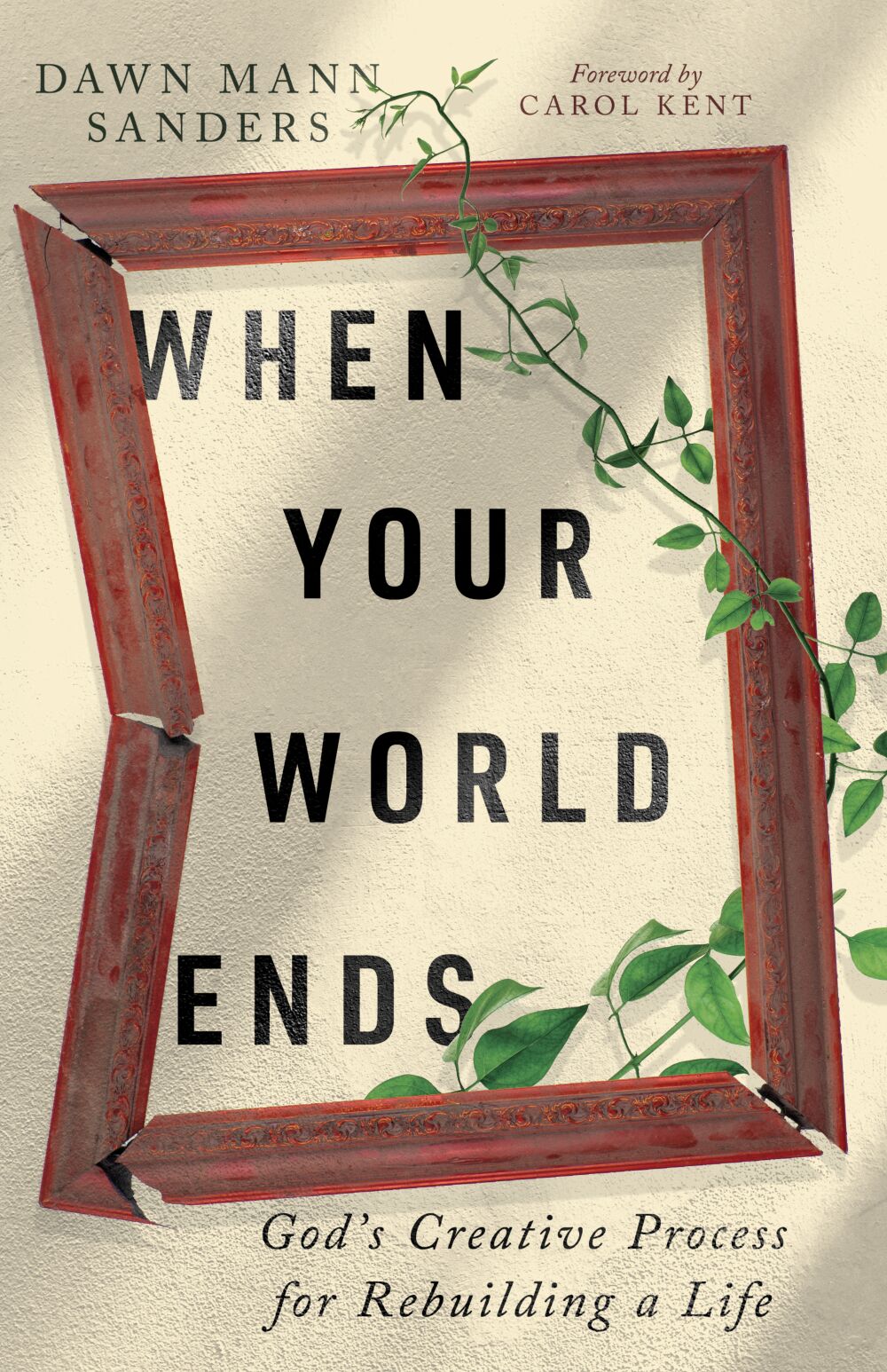“Do You…” Those two short words were a common, yet powerful refrain in the days following Reggie’s death. Their power contained waves of freedom that, in their repetitiveness, washed over me again and again.
Freedom is not something most offer as a focal point of a season of grief. The unwelcome guest misfortune has visited our lives leaving too many of us feeling helpless in our inability to change what’s happened. We feel powerless, and as a result, relinquish the power and freedoms we still have.
We feel powerless, and as a result, relinquish the power and freedoms we still have. Share on XOur propensity to overlook our freedoms—and the power accompanying them—is why those who understand our need for them remind us of their availability. Today, by penning this article, I join them in an effort to remind you.
Part 2 of the How to Respond When Life Happens Series
Next in our series walking through the Book of Ruth, we will be discussing freedom. The topic of freedom is born out of the next phrase we’re unpacking from Ruth 1:1: “in the days when the judges ruled.” The judges ruled the nation of Israel from approximately 1370 B.C. to 1041 B.C. It was the period between Joshua’s death and Saul’s reign.
Now it came to pass, in the days when the judges ruled, that there was a famine in the land. And a certain man of Bethlehem, Judah, went to dwell in the country of Moab, he and his wife and his two sons.
~ Ruth 1:1
During this period, Israel entered a disastrous cycle marked by the following milestones (Judges 2:8-22):
- Disobedience – Israel did evil by forsaking God.
- Defeat – God removed His protection resulting in their capture.
- Distress – Israel cried out for a deliverer.
- Deliverance – God sent a deliverer, but upon the end of their leadership, Israel reverted back to evil—disobedience.
The Book of Judges very aptly describes this sin cycle thusly: “In those days there was no king in Israel; everyone did what was right in his own eyes.” Obviously, Israel used their freedom in unhealthy and sinful ways when life happened to them. In this article, we will explore three healthy and sinless ways to respond when life happens—in other words, following a catastrophic or life-altering event.
1. Free to Grieve Your Loss(es)
Top of the list of ways to express your freedom following a life-altering event is grieving. If you aren’t careful, acting out of strong emotions like grief can lead to more devastating events. We don’t want that, but we do want to grieve. And sometimes, that’s easier said than done.
Acting out of strong emotions like grief can lead to more devastating events.
As gregarious, supportive people, Reggie and I moved in and out of a lot of different circles. When Reggie died, people from all those circles rallied around to help me through the grieving process. There was such an outpouring of love, at times, it was overwhelming—and made it difficult to find time to grieve. At the same time, when I did find private moments to grieve, I had to be careful not to wallow.
Living alone, I easily could have sunk into oblivion. Having so many people reaching out helped in that regard. But when I stoically attended a church meeting, I overheard someone comment, “She isn’t grieving.” Because this person hadn’t witnessed my tears, she assumed I hadn’t shed any.
That couldn’t have been further from the truth. That person didn’t know I spent the greater part of the day in bed, not rising until 5 pm to get ready for the church meeting at 7 pm.
As long as Jesus was happy with me and my response, that was all that mattered. Thankfully, Jesus didn’t require me to cry on demand, so I was good.
She didn’t see my tears because I purposed not to shed them publicly. So, when she came over to tell me it was okay to cry, my response was, “Is it also okay if I don’t?” I wasn’t trying to be sassy, but I was determined to “do me” and grieve as I felt led to grieve and not according to anyone else’s standards. As long as Jesus was happy with me and my response, that was all that mattered. Thankfully, Jesus didn’t require me to cry on demand, so I was good.
Therefore, my advice is not to allow others to dictate how you grieve. Everyone grieves differently. Because each loss is different, you may respond to each loss differently too. I grieved more publicly when my father died than with Reggie. Though my outward responses were different, I grieved each the same—which is very deeply.
Don't allow others to dictate how you grieve. Everyone grieves differently. Share on XSo, as long as you can experience your emotions without sinning, take advantage of your freedom to grieve your losses as you feel led and not to meet anyone else’s standards. Your priority is to join God in your healing—and trust Him with theirs.
2. Free to Imagine Your Future
Having experienced the agony of living with unresolved pain, I was intentional about my healing emotionally. I wish I’d been as intentional with imagining my future.
Prior to Reggie’s death, imagining my possible futures came easy—even before I met him. One could have called me a dreamer and they wouldn’t have been far off. Well, that was me before Reggie died.
I would like to say I struggled with dreaming—and I did at first. Then, the struggle went away. I simply stopped dreaming. It hurt so much to picture my life without Reggie that I just stopped.
I now realize I struggled because I tried to do it too soon.
So, my advice to you is to focus on your healing first. As I said in the previous section, following a catastrophe, healing is your highest priority. As much as you may want to, you can’t rush it. Oh, you can try—like I did, but like me, you aren’t likely to be successful.
Focus on your healing first, you can’t rush it. Grieving is like the common cold. You have to let grief run its course, and when it has, you’re free to begin imagining your future again. Share on XGrieving is like the common cold. There’s no cure, only treatments. So, you have to let it run its course. The same is true for grief. You have to let grief runs its course, but when it has, you’re free to begin imagining again. When you’re healed, be intentional about imagining your future. You’ll be one step closer to creating your new life, if you do.
3. Free to Embrace Your Possibilities
When God woke me up the morning following my husband’s death, He invited me into what felt like an impossible situation—living without Reggie. My flesh said, “I couldn’t do it.” I definitely didn’t want to do it. I didn’t want to be Reggie’s widow. I wanted to be Reggie’s wife.
The impossible loomed so large in my life that for years, I couldn’t see the possible. To be honest, I was so hurt and angry over what I lost that I couldn’t see what was still possible. So, once again, I had to heal first.
Once I healed and began dreaming of what my new life could look like, I was free to embrace the possibilities of what it could be like again.
Now, before you say, that is fine for you, Dawn, but it isn’t possible for me. Remember Matthew 19:26:
But Jesus looked at them and said to them, "With men this is impossible, but with God all things are possible." ~ Matthew 19:26
With God, all things are possible. I am not special, but God is. He is no respecter of persons. If He did it for me, He can do it for you. You just have to embrace the truth. Embracing the truth allows you to embrace the possibilities. Then, embracing the possibilities changes your expectations. Changing your expectations allows you to see opportunities when God presents them to you. Next, you begin to take advantage of those opportunities and begin to create your new life.
It all begins with recognizing your freedoms. There is always freedom because God always makes a way of escape—a way to break free of restrictive situations and thinking.
No temptation has overtaken you except such as is common to man; but God is faithful, who will not allow you to be tempted beyond what you are able, but with the temptation will also make the way of escape, that you may be able to bear it. ~ 1 Corinthians 10:13
It starts with healing. If you need to heal, why not start today? You’re free to do so.
The “How to Respond When Life Happens” Series:
- Part 1 – How to Respond When Life Happens
- Part 2 – The Freedom to Do You
- Part 3 – The Purpose of Chaos
- Part 4 – The Difference Between Felt Needs and Real Needs
- Part 5 – Who’s Ruling You? An Article about Submission
- Part 6 – Famines in the Bible
- Part 7 – The Differences Between Famines, Fasts and Feasts
- Part 8 – Famine in the Community
- Part 9 – The Meaning of the Land as Israel’s Possession
- Part 10 – What’s Important about Naomi’s Opening Situation in the Book of Ruth?
- Part 11 – Three Locations in the Book of Ruth
- Part 12 – Traveling in the Book of Ruth vs. Now
- Part 13 – Naomi’s Family’s Names in the Book of Ruth







